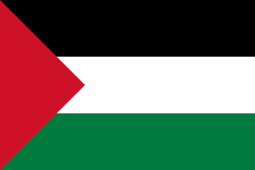17 July Revolution
| 17 July Revolution | |||||||
|---|---|---|---|---|---|---|---|
| Part of the Arab Cold War | |||||||
| |||||||
| Belligerents | |||||||
|
| |||||||
| Commanders and leaders | |||||||
|
President of Iraq Prime Minister of Iraq |
Deputy Head of Military Intelligence | ||||||
| Units involved | |||||||
| Presidential Guard |
10th Armoured Brigade Jihaz Haneen | ||||||
| Part of a series on | ||||||||||||||||||||||||||||
| Ba'athism | ||||||||||||||||||||||||||||
|---|---|---|---|---|---|---|---|---|---|---|---|---|---|---|---|---|---|---|---|---|---|---|---|---|---|---|---|---|
 | ||||||||||||||||||||||||||||
|
||||||||||||||||||||||||||||
|
||||||||||||||||||||||||||||
|
||||||||||||||||||||||||||||
|
Related topics |
||||||||||||||||||||||||||||
| ||||||||||||||||||||||||||||
The 17 July Revolution was a bloodless coup in Iraq in 1968, led by General Ahmed Hassan al-Bakr, which brought the Iraqi Regional Branch of the Arab Socialist Ba'ath Party to power. Both Saddam Hussein, later President of Iraq, and Salah Omar al-Ali, later a Ba'athist dissident, were major participants in the coup. The Ba'ath Party ruled from the 17 July Revolution until 2003, when it was removed from power by an invasion led by U.S. and British forces. (The 17 July Revolution is not to be confused with the 14 July Revolution, a coup on 14 July 1958, when King Faisal II was overthrown, ending the Hashemite dynasty in Iraq and establishing the Republic of Iraq.)
While the exact circumstances leading up to the coup are shrouded in mystery, it appears that the non-Ba'athists Abd ar-Razzaq an-Naif and Ibrahim Al-Daoud—who were, respectively, in charge of President Abdul Rahman Arif's military intelligence and personal security—initiated the plot, and that Ba'athist conspirators including al-Bakr, Hardan al-Tikriti, and Salih Mahdi Ammash were only asked to participate in order to establish a broader coalition of support for a new government. Many of the plotters were reportedly "fond of President 'Arif"; however, the coup was motivated by rumors that Arif's Nasserist (and former Ba'athist) Prime Minister, Tahir Yahya, who was increasingly dominating Arif's "weak" government due to the political climate engendered by the costly Arab defeat in the Six-Day War, planned to formally usurp all power for himself. After his ouster, Arif was sent on a plane to the United Kingdom, and even Yahya was not executed, because "the new group ... didn't want world opinion to say theirs was just another Iraqi blood bath." However, on 30 July al-Bakr arranged for the exile of both an-Naif and Al-Daoud, and assumed the position of Prime Minister from an-Naif, solidifying the Ba'ath's control over Iraq for the next thirty-five years—as al-Bakr's deputy, Saddam Hussein, "succeeded in consolidating a formidable political regime ... where so many others had failed," including co-opting Yahya's intention to nationalize the Iraq Petroleum Company (IPC) with the help of the Soviet Union.[1]
See also
References
- ↑ Wolfe-Hunnicutt, Brandon (March 2011). "The End of the Concessionary Regime: Oil and American Power in Iraq, 1958-1972". pp. 21–22, 146–147, 149–154, 182, 187, 194–195, 200–202, 209–261. Retrieved 2017-07-13.
External links
- See Memorandum From John W. Foster of the National Security Council Staff to the President's Special Assistant (Rostow): The Iraqi Coup and Memorandum From John W. Foster of the National Security Council Staff to the President's Special Assistant (Rostow): A Clearer Picture of the Iraqi Coup from the United States Department of State's Foreign Relations of the United States (FRUS) for early U.S. reactions to the coup.
- For contrasting British and American assessments of the new government, see Saddam Hussain and Memorandum Prepared in the Central Intelligence Agency: Some Notes on Iraqi Politics from the National Security Archive and FRUS.
- Gibson, Bryan R. (April 2013). "U.S. Foreign Policy, Iraq, and the Cold War 1958-1975" (PDF). briefly discusses the completely false claim that the U.S. Central Intelligence Agency (CIA) supported the coup in a footnote on page 169.
.jpg)